The violation of women’s fundamental rights through physical, mental, emotional, and sexual violence against women has become almost commonplace in the Indian context. With the current state of affairs, it is extremely essential for us to be vigilant and aware of the rights and duties that the law of the land make available to us. Most women aren’t aware of women’s rights in India and other times their legal rights are not protected as they should be.
This list of rights will tell you what to do when reporting a case of sexual assault and the rights that are available to you when approaching the police:
1.
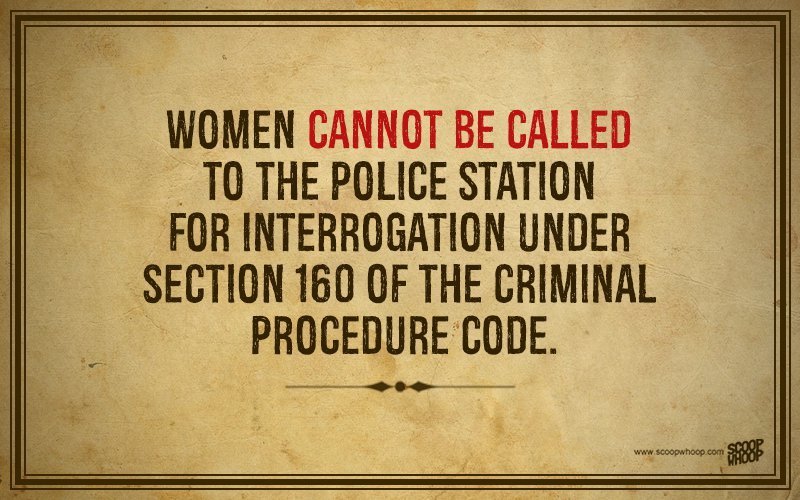
This law provides Indian women the right of not being physically present at the police station for interrogation. The police can interrogate a woman at her residence in the presence of a woman constable and family members or friends.
2.
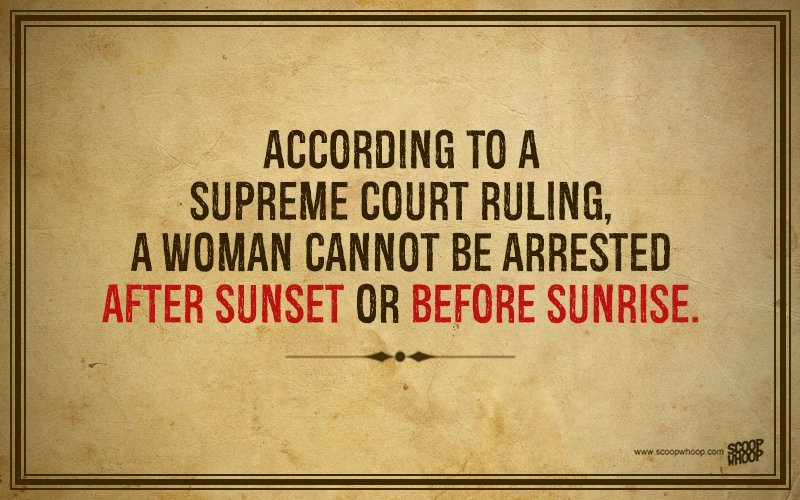
As per Supreme Court guidelines, no woman can be detained in the police station under any pretext after sunset and before sunrise, without special permission from the magistrate. In case the woman has committed a serious crime, the police has to get it in writing from the magistrate why the arrest is necessary during the night.
3.

The concept of a ‘Zero FIR’ means that an FIR can be filed at any police station irrespective of its jurisdiction to receive complaint. E ven if you are far off from the place of incident and may not be sure of the correct jurisdiction, the Station House Officer of a police station is under legal obligation to lodge your FIR. A Zero FIR can be filed at any police station, irrespective of place of incident or jurisdiction, and it can be later transferred to the right police station.
4.
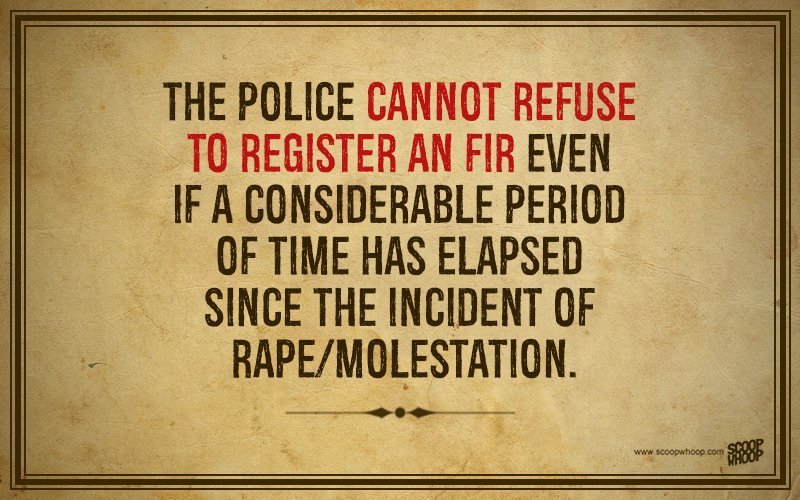
Rape is a horrific incident and leaves the victim scarred. Furthermore, in our societal scenario a lot of other factors come into play when it comes to the question of reporting a rape. Taking this into consideration, the Supreme Court has ruled that even if there has been a gap between the report and the occurrence of the incident, the police must register an FIR.
5.
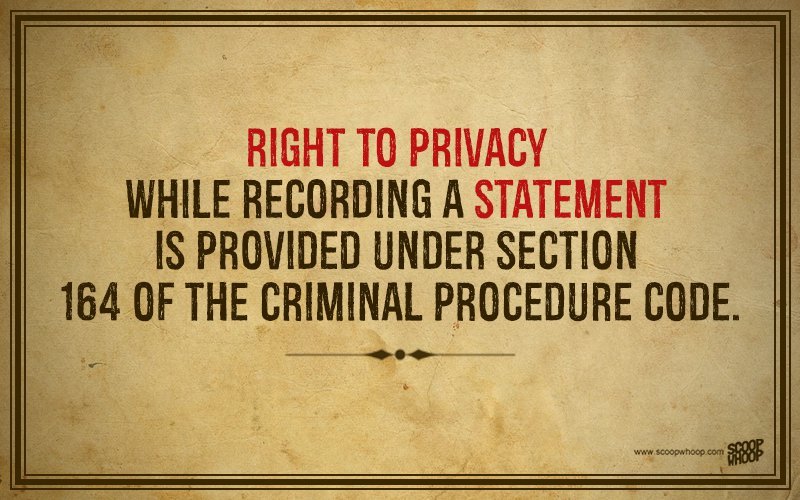
When reporting an incident of rape or sexual assault, it is of utmost importance that the victim feels comfortable and is not under any sort of mental duress or stress while narrating the incident. The law lays down that it is the duty of the police to upkeep the woman’s right to privacy. Under section 164 of the Criminal Procedure Code, a woman can record the statement with only one police officer and woman constable in a convenient place that is not crowded and does not provide any possibility of the statement being overheard by a fourth person, at a location of her choice.
6.
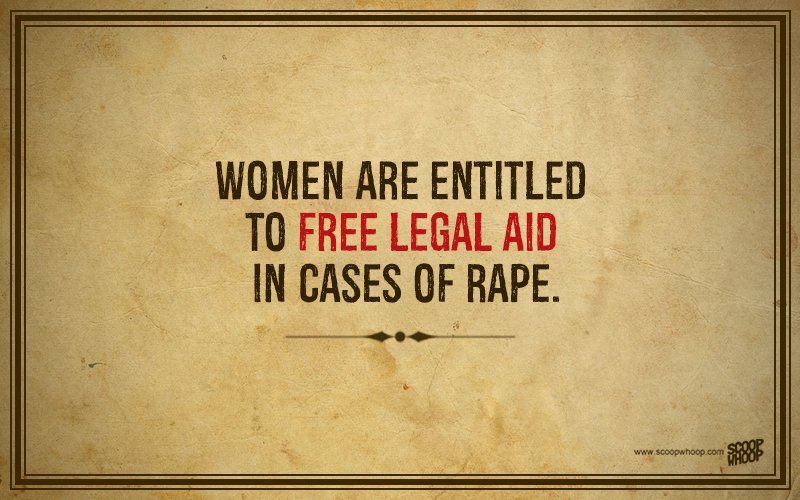
According to a Court ruling, whenever a rape is reported, the Station House Officer has to bring this to the notice of the State Legal Services Authority. The legal body then arranges for a lawyer for the victim. More often than not, survivors go to the police station unaccompanied by a lawyer to get their statement recorded, and they stand the risk of being misquoted or their statement being tampered with. The police may also treat the entire episode lightly and not lodge an FIR. So, it is necessary to have a lawyer with you while you lodge the FIR.
7.
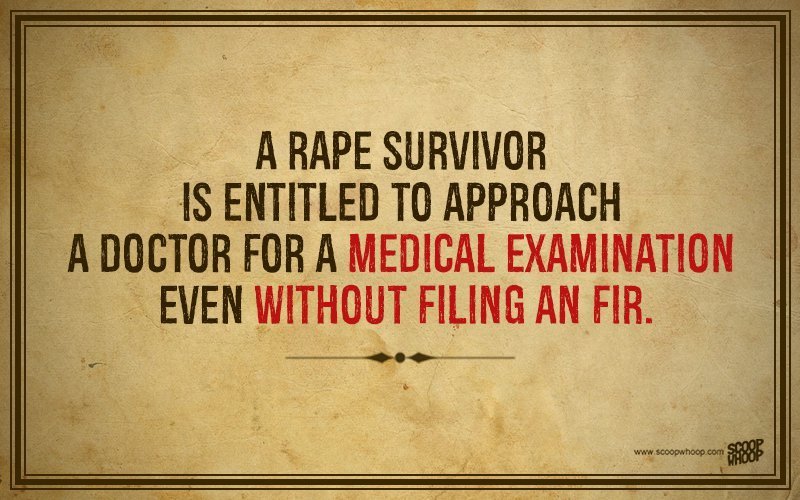
The Forensic Medical Care For Victims Of Sexual Assault lays down guidelines which state that a rape survivor can approach a doctor for a medical examination even without filing an FIR. It is now mandatory for private and public hospitals to give first aid to the survivor before informing the police. The doctor has to explain the medical examination procedure to the survivor and get her written permission.
8.

If, for some reason, a woman can’t go to the police station, she can send a written complaint through an email or registered post addressed to a senior police officer of the level of Deputy Commissioner or Commissioner of Police. The officer then directs the SHO of the police station, of the area where the incident occurred, to conduct proper verification of the complainant and lodge an FIR. The police can then come over to the residence of the victim to take her statement.
9.

A woman has the right to have a copy of the medical report from the doctor. Rape is crime and not a medical condition. It is a legal term and not a diagnosis to be made by the medical officer treating the victim. The only statement that can be made by the medical officer is that there is evidence of recent sexual activity. Whether the rape has occurred or not is a legal conclusion and the doctor can’t decide on this.

















